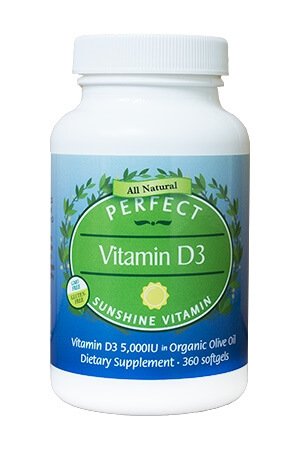 I purchased Perfect D3 last spring, and I didn’t really see a difference in how it made us feel then. All summer, here in Montana we get lots of access to the sun- it usually rises before we’re up and sets after my kids go to bed. But after fall equinox, it quickly starts getting darker, and colder, so we have less skin exposed to the sunshine that is available, and therefore our ability to absorb vitamin D naturally.
I purchased Perfect D3 last spring, and I didn’t really see a difference in how it made us feel then. All summer, here in Montana we get lots of access to the sun- it usually rises before we’re up and sets after my kids go to bed. But after fall equinox, it quickly starts getting darker, and colder, so we have less skin exposed to the sunshine that is available, and therefore our ability to absorb vitamin D naturally.
When moods started to dampen, I went searching for this little bottle of sunshine. Cod Liver Oil can be used as well, but for now we are taking this D3- and I love it! The capsule is tiny, and actually tastes good (my kids chew theirs), and it’s inexpensive as well.
I notice a difference in our moods when we forget our morning supplement, and I wanted to share the benefits of vitamin D, and what you want to look for in a Vitamin D supplement with you.
What is vitamin D3?
Vitamin D is more of a hormone that plays many important roles in the body, than it is a vitamin.
Adequate intake of well-absorbed vitamin D is linked to:
- Lowered risk of cardiovascular disease (source)
- Lowered symptoms and risk of depression (source) (source)
- Prevention of common cancers (source)
- Better athletic performance (source)
- Lowered risk of fractures due to weak bones (source)
- Better absorption of both calcium and phosphorus, both needed for healthy bones among other things. (source)
- Better ability to produce insulin, gene regulation, and many other processes in the body. (source)
- Reduction or elimination of symptoms of fibromyalgia; sometimes the pain and fatigue of vitamin D deficiency is miss-diagnosed as fibromyalgia/chronic fatigue syndrome. (source)
What foods are D3 found in?
Vitamin D3 is found in fatty fish, and Vitamin D2 is found in a certain kind of mushroom that has been exposed to the sun (cool, right?!). Egg yolks and liver have natural vitamin D3, milk sold commercially is fortified with vitamin D.
We get most of our vitamin D from exposure to the sun. Vitamin D from the sun is shown to be about twice as effective in our body than supplementation. (source) Sunscreen at 30 SPF or higher can reduce our absorption of vitamin D (source), with other factors that lower absorption including covering by clothes, obesity, and darker skin tone.
What do we want to look for when looking for a Vitamin D Supplement?
The two types of vitamin D are D2, also called ergocalciferol, and D3, also called cholecalciferol. Both D2 and D3 have been researched and are effective as supplements, though vitamin D3 has shown to be needed at a less frequent dose, and has been shown to raise vitamin D levels in the body more consistently over a 1-year period. (source)
For the best absorption, take vitamin D3 along with a meal that contains fat. (source)
With all vitamins, we want to avoid over consumption while still keeping our intake adequate. Presumably, if we have a healthy gut that is absorbing our nutrients well, lots of healthy outdoor time, and a healthy diet that is rich in nutrient-dense foods including offal (like liver!) and seafood products, we will be just fine. But in the case of people with leaky gut, who work or spend lots of time inside, and/or have a less than great nutrient intake, supplementation can be helpful.
It was originally thought that 600 IU a day was sufficient to prevent vitamin D deficiency, but it has been shown that is not the case especially with limited sun exposure. (source)
The current recommendation for typical (read: lots of inside time) healthy (not already deficient) people in north America is 1000 IU a day for children, and 1500-2000 IU a day for adults. (source)
These recommendations are consumption of vitamin D, which can be from sunlight or from food. So personally, we only supplement when we are not in the sun often.
It has been shown that even units of more than 600,000 IU approximately once a month will correct a vitamin D deficiency without showing toxicity. (source) And it is also shown that light therapy is more beneficial than supplements for a certain part of the population that does not absorb vitamin D supplements well. (source)
The kind of supplements you take matter!
Click here for more information about the correct form of folate, and which kind to avoid.
Perfect Supplements
Personally, I am happy with taking Perfect Supplement’s Vitamin D3, and this is what I give my family.
Click here to see what I buy from Perfect Supplements, and don’t forget to use the code HAPPINESS10 for 10% off your order!
Learn how to heal leaky gut

60-page ebook of all my best GAPS Diet (Gut and Psychology Syndrome) articles all in one place.


Hi Cara,
My 9year old daughter has tested low in vitamin D. Since Perfect Supplements Vit D3 has 5,000 ju’s, do you give them to your children? Do you give them the liver supplements as well? Do you also supplement K2? Thank you so much for all of your research. I love reading your blog and learning about helping my family. You are a blessing to your readers.
Kelly
Hi Kelly, I give my kids the 5000 every other day, or a couple times a week. We try to eat liver at least once a week, and we don’t supplement K2.